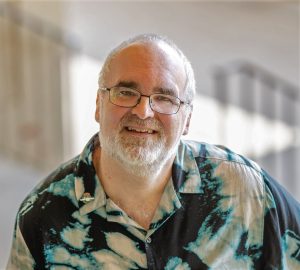A few years ago, I got to the point where I could not watch the evening news. It was just TOO MUCH, causing me to be depressed. One evening, around news time, I surfed the channels and found an oasis—one of the oldies channels showing an hour of Happy Days during my normal news time. Finally, a solution to the doom and gloom!
If you’ve been under a rock for half a century or are too young to remember, Happy Days follows the exploits of Richie Cunningham (played by Ron Howard, Opie grown up a bit) and Arthur “The Fonz” Fonzarelli (Henry Winkler) and the rest of their gang, navigating life in the late ‘50s/early ‘60s. The show debuted in 1974 during a wave of ‘50s nostalgia and lasted until 1984—my formative years.
One night during my “anti-news Happy Days mini-marathon,” I witnessed a big juxtaposition I had forgotten. The first episode of the evening was the second season finale, focusing on Richie and his pals Potsie and Ralph Malph on an overnight school field trip to Chicago. Typical of the first two seasons, the episode was on film, enhanced with a laugh track, and played out like a mini-movie.
The next episode that night was the season three premiere, and the changes were startling. Facing sagging ratings, the producers revamped the series that season, shooting on videotape in front of a live audience and placing the Fonz, previously a minor character, at the center of the action, with more broad comedy and catchphrases like “Sit on it!” The changes worked ratings-wise, as Happy Days soon became the number-one show on television and remained near the top for several seasons, even after Ron Howard left to become a famous film director.
I was in middle school when this change to “Fonzie and More Fonzie” took place. He was the coolest character on the planet, and my classmates and I wanted to be like him. I even had a “I’m with the Fonz” t-shirt with a depiction of his “thumbs-up” pose.
Seeing the stark differences in tone from one episode to the next made me think of such changes in writing direction. When I began writing and pursuing publication, I was firmly in the fiction camp, planning to be the next Great American Novelist. I attended writers conferences and studied dialogue, POV, and all things fiction.
Just as Richie and Fonz and crew changed tone, God changed my direction a few years into my journey, guiding me toward writing devotions and other inspirational essays. Back in the day, I remember the new Happy Days took some getting used to, and my new “Carlton devotions” felt the same. I did learn that some of the things I studied in fiction writing—the aforementioned dialogue and POV, among other techniques—have made me a better writer of inspirational essays. Setting a scene for your readers is just as important in nonfiction as it is in fiction.
What to do if God changes your writing direction? Be like the Fonz: give a thumbs up and say “AAAAYYYYY!!!!” Then Sit on It and start writing.

Carlton Hughes, represented by Cyle Young of Hartline Literary, wears many hats. By day, he is a professor of communication. On Wednesday evenings and Sunday mornings, he serves as a children’s pastor. In his “spare time,” he is a freelance writer. Carlton is an empty-nesting dad and devoted husband who likes long walks on the beach, old sitcoms, and chocolate—all the chocolate. His work has been featured in Chicken Soup for the Soul: The Dating Game, The Wonders of Nature, Let the Earth Rejoice, Just Breathe, So God Made a Dog, and Everyday Grace for Men. His latest book is Adventures in Fatherhood, co-authored with Holland Webb.





No Comments